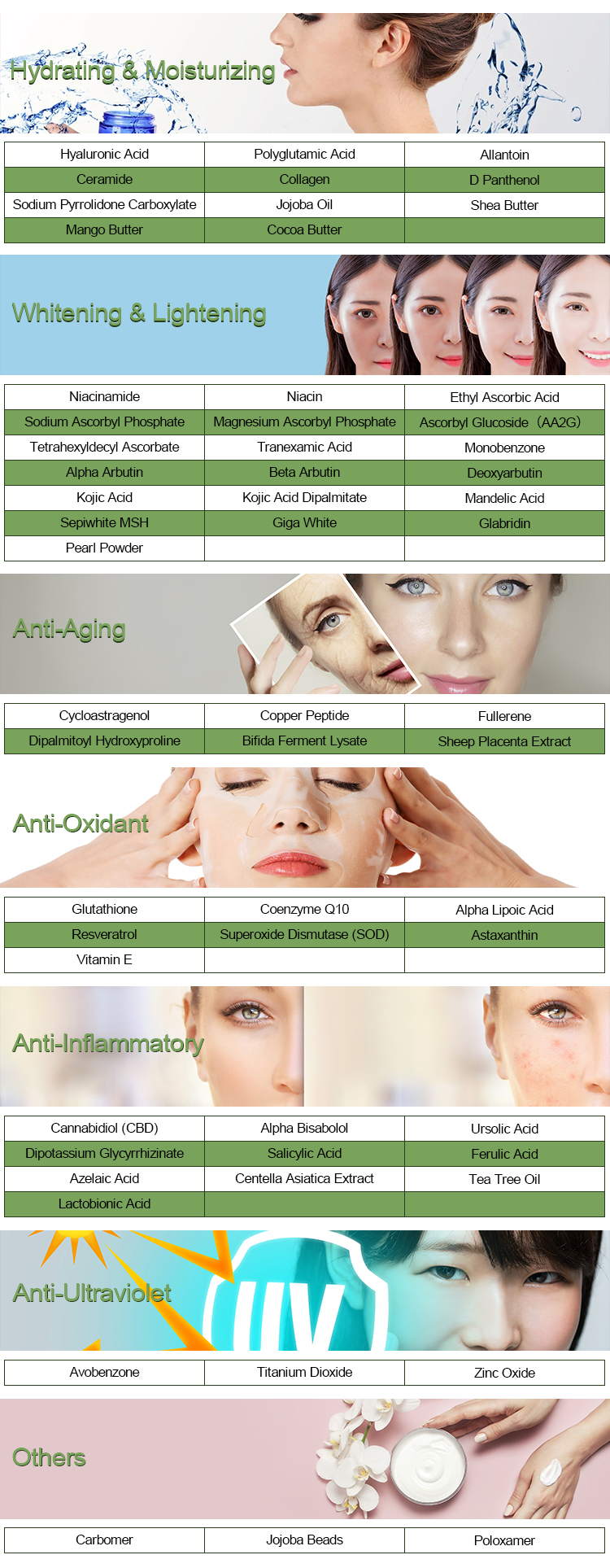Sodium Ascorbyl Phosphate (SAP) is a stable derivative of Vitamin C (ascorbic acid) that is often used in the cosmetic and skincare industry due to its potential benefits for the skin. It is known for its antioxidant and skin-brightening properties. While I cannot provide a comprehensive study in the traditional sense, I can offer you an overview of its properties and uses based on existing knowledge up to my last update in September 2021.
- Antioxidant Properties:
Sodium Ascorbyl Phosphate is a water-soluble form of Vitamin C, which is an antioxidant. Antioxidants help protect the skin from free radicals, which can cause premature aging and damage to the skin.

- Skin Brightening:
Sodium Ascorbyl Phosphate has been studied for its ability to reduce hyperpigmentation, such as age spots and sun damage. It can inhibit melanin production, helping to even out skin tone.
- Collagen Synthesis:
Vitamin C, in its various forms, including Sodium Ascorbyl Phosphate, plays a role in collagen synthesis. Collagen is essential for maintaining the skin’s firmness and elasticity.
- Anti-Inflammatory:
Sodium Ascorbyl Phosphate has demonstrated anti-inflammatory properties and can help soothe and calm irritated skin.
- Acne Treatment:
Some studies suggest that Sodium Ascorbyl Phosphate may be effective in treating acne due to its anti-inflammatory properties and its ability to inhibit the growth of acne-causing bacteria.
- UV Protection:
While not a replacement for sunscreen, Sodium Ascorbyl Phosphate may offer some protection against UV radiation, but it should not be relied upon as the primary means of sun protection.
- Stable Form of Vitamin C:
Unlike pure ascorbic acid, which can be unstable and degrade quickly when exposed to air and light, SAP is a more stable form of Vitamin C, making it suitable for skincare products.
- Use in Cosmetics:
Sodium Ascorbyl Phosphate is a popular ingredient in various skincare products, including serums, moisturizers, and creams. It is often included for its skin-brightening and anti-aging properties.

- Skin Penetration:
Sodium Ascorbyl Phosphate is known for its good skin penetration, which means it can be absorbed by the skin more effectively compared to some other forms of Vitamin C.
It’s important to note that while Sodium Ascorbyl Phosphate has many potential benefits, the results can vary from person to person, and it may not be suitable for all skin types. If you are considering adding a product with SAP to your skincare routine, it’s a good idea to consult with a dermatologist or skincare professional to ensure it’s the right choice for your specific needs.
Since research in the field of skincare and cosmetics is ongoing, I recommend checking for more recent studies and expert opinions regarding Sodium Ascorbyl Phosphate to get the latest information and insights.
